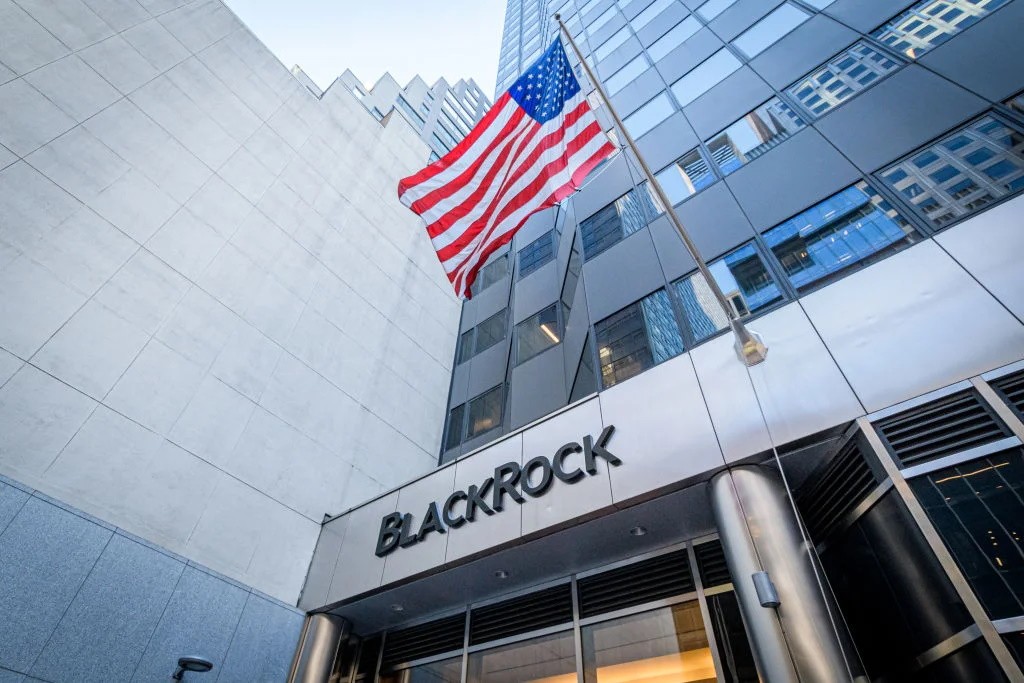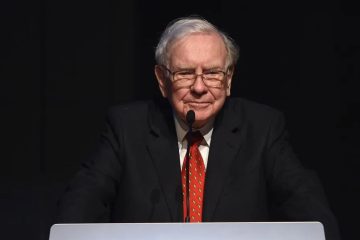Questions about $11 trillion of BlackRock’s assets

The $11 trillion in assets for BlackRock’s Larry Fink raises pertinent questions about the evolving landscape of asset management and the relentless pursuit of growth in an increasingly competitive market. BlackRock’s clientele is significantly increasing their investments in its fundamental stock and bond products. In a bid to sustain the current momentum, chief Larry Fink aims to steer the world’s largest asset manager towards the more profitable realm of private markets. By expanding its portfolio to include private equity, private credit, real estate, and infrastructure, BlackRock could enhance its competitive stance against the largest alternative asset managers. This could potentially enhance the value of BlackRock.
Companies like Blackstone, Apollo Global Management, and KKR oversee only a small portion of BlackRock’s $11.5 trillion in assets. Nevertheless, those competitors possess market valuations that approximate BlackRock’s, which stands at approximately $150 billion. The rationale lies in the fact that private-market funds are able to levy higher fees compared to the more modest charges associated with BlackRock’s standard index-based offerings. The market duly recognizes and compensates such behavior. In the last one, three, and five years, the stocks of Blackstone, Apollo, and KKR have significantly surpassed those of BlackRock. To address this challenge, Fink is adopting a strategy of collaboration through acquisitions, embodying the principle of joining forces rather than competing directly.
The 72-year-old, at the helm of BlackRock since its inception in 1988, is well-acquainted with reshaping the firm via strategic transactions. Transforming BlackRock into a powerful player in private markets would reinforce its position at the pinnacle of Wall Street. The appetite for private investments among institutional investors, such as pension funds and insurance companies, has significantly increased over the last ten years. With the rise in private market allocations among its clients, BlackRock aims to retain a greater share of their business.
This year, BlackRock made two significant acquisitions, both designed to enhance its private-market capabilities. In June, it reached an agreement to acquire Preqin, a provider of data on private assets, for $3.2 billion. In October, BlackRock finalized its $12.5 billion acquisition of Global Infrastructure Partners, an alternative asset manager specializing in infrastructure, representing the firm’s most substantial entry into private markets to date. The GIP agreement propelled BlackRock’s alternative asset portfolio by 35%, reaching a total of $450 billion. This positions it closely to KKR and Apollo, yet significantly trails the market leader Blackstone, which stands at $1.1 trillion.
Following the emphasis placed by BlackRock executives on their commitment to private markets during the earnings call in October, analysts are now pondering which firm might be next on their acquisition agenda. “They have engaged in a series of targeted acquisitions that enhance their footprint in private credit and alternative assets,” remarked Cathy Seifert, an analyst at CFRA Research. “There appears to be a segment within the investment community that favors a more substantial transaction—perhaps the acquisition of a private-equity firm, for instance.”
In October, Bloomberg disclosed that BlackRock is engaged in advanced negotiations to acquire HPS Investment Partners, a private credit manager overseeing approximately $100 billion in assets. This transaction would position BlackRock among the foremost private-credit managers in the industry. Private credit, characterized by asset managers extending loans directly to companies at rates surpassing those commonly found in the bond market, has emerged as one of the most sought-after investments on Wall Street. Executives have been keeping their deal plans under wraps, yet their aspirations in the private market are unmistakably evident.
“Private markets represent a strategic priority,” stated BlackRock Chief Financial Officer Martin Small during the earnings call. Investors are applauding the move towards alternatives, representing BlackRock’s most significant strategic pivot since its acquisition of the iShares exchange-traded fund business 15 years prior. BlackRock shares, having surged over 60% in the past year, reached a new peak in October for the first time since 2021, following the release of its results. “Although opportunities for growth within the iShares franchise remain apparent, its considerable scale may pose challenges to sustaining ETF growth,” remarked Kyle Sanders, an analyst at Edward Jones. “BlackRock may initiate additional acquisitions to enhance its standing in the private market relative to competitors.”
In the third quarter, alternatives constituted a mere 3% of BlackRock’s total assets, yet they accounted for an impressive 11% of total revenue, underscoring the substantial profitability of the associated fees. Small, BlackRock’s finance chief, highlighted this opportunity, pointing out that insurance companies hold $700 billion in assets with BlackRock. A mere 10% shift of that into private-credit strategies would significantly enhance the alternative assets landscape. Numerous potential roadblocks exist that could hinder a successful pivot to the private market. The intricacies and challenges inherent in asset management mergers are well-documented and widely recognized. The value ascribed to an asset manager largely hinges on its network and the expertise of its investment professionals, who possess the ability to depart with relative ease.
The surge in valuations for alternative asset managers suggests that any potential acquisition target will command a premium price. The justification for a premium valuation hinges on BlackRock’s capacity to enhance the worth of a private-markets manager through the integration with its current clientele and distribution networks. BlackRock is actively seeking to expand the distribution of its private-market assets to a broader range of investors. This includes the introduction of a new model portfolio designed to facilitate access to private assets for individuals who rely on wealth advisers.








